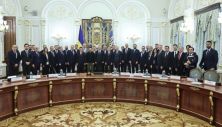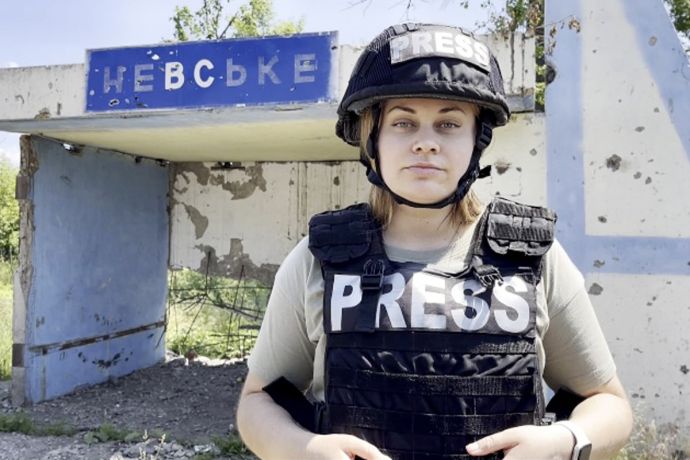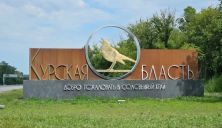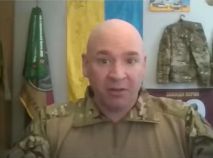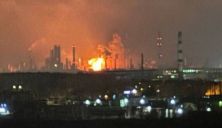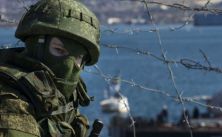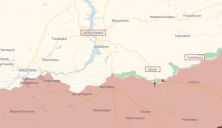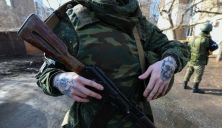Ukrainian war correspondent Anastasia Volkova says she has gotten used to falling asleep to the sound of explosions. Nowadays, the 30-year-old journalist doesn’t even take shelter when air raid sirens sound.
Volkova, a videographer for the Ukrainian television channel FREEDOM, has reported extensively on the war since Russia launched its full-scale invasion last year, mainly covering the events in the front-line city of Sloviansk, just 30 kilometers from the war’s front lines.
In an interview with Context.ro, the journalist speaks about some of the reporting she’s undertaken in Sloviansk, a city that has suffered widespread damage amid the war which has prompted more than half of the city’s residents to flee.
“You never know what will hit and where, if the Ukrainian military has success at the front, the Russians simply start shelling, destroying the homes of civilians,” she said.
“We did not see a single surviving high-rise building,” she added. “People here are used to the shelling.”

Ukrainian war correspondent Anastasia Volkova
In recent months, however, Ukrainian troops’ have been pushing Russian forces back from the eastern city, which has left many Ukrainian residents with a sense of hope, she said. Shops and businesses are also opening up and residents are slowly returning to work.
“Citizens can get a free lunch every day, bread is delivered regularly, and doctors give free consultations,” she said, adding that the city’s main water supply is yet to be reconnected. “Special heating points will be created for the winter. People are coming back and rebuilding their homes.”
But as the war drags on, Volkova is keenly aware that things could always take a turn for the worse. The journalist always keeps a bag packed with personal belongings including official documents – in case she needs to flee.
Volkova recalls a recent reporting trip she undertook at the Kolotilovka-Pokrovka border, which is the only checkpoint between the two warring nations, located between Ukraine’s Sumy region and Russia’s Belgorod region.
“We talked with a family traveling from the occupied Starobelsk, a woman with two children of two and three years old,” the journalist said. “Now the Russian authorities in the occupied territory are forcing people to make Russian passports.”
The woman refused. Instead, she embarked on a long and arduous trip to an unoccupied region of Ukraine to seek safety with her small children.
“The driver did not take her directly to the checkpoint (since) it is forbidden – she had to walk another three kilometers to the border … she carried one of the babies in her arms all the way,” she recalls.
At the checkpoint – on the Ukrainian-controlled side – anti-Russian sentiment is evident: a so-called ‘Museum of Hatred’ has been set up, where people who have crossed into Ukraine are tearing up their Russian money, she said.
But despite myriad hardships and witnessing the horrors of war up close, Volkova is optimistic that she will one day return to her hometown of Luhansk, under the flag of Ukraine.
“The fighters are preparing for a long war and are saving their strength so as not to run out of steam now,” she added. “No one even thinks about the possibility of negotiations.”
Edited by Stephen McGrath
Photo: Ukrainian war correspondent Anastasia Volkova
